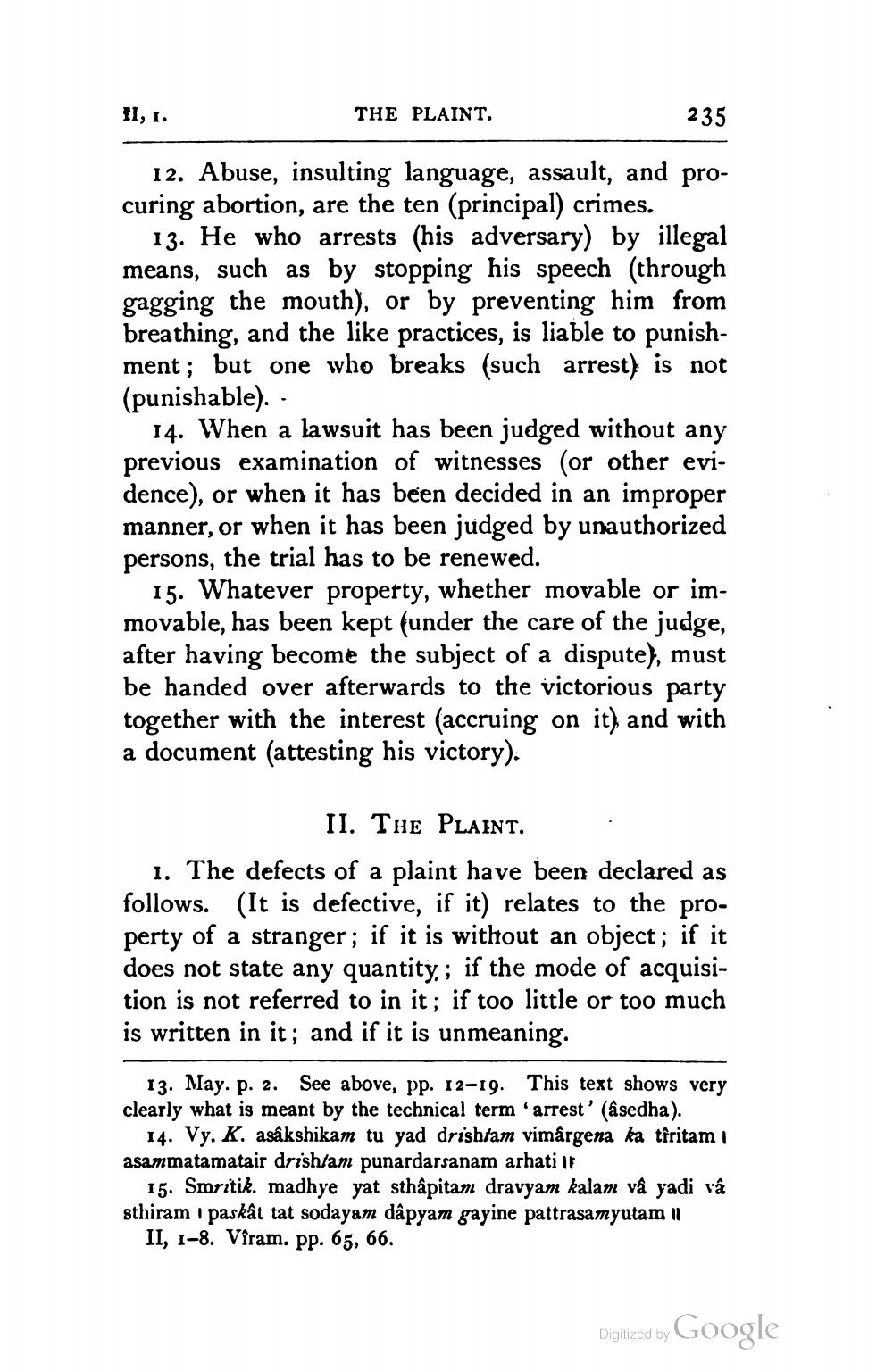________________
II, 1.
THE PLAINT.
235
12. Abuse, insulting language, assault, and procuring abortion, are the ten (principal) crimes.
13. He who arrests (his adversary) by illegal means, such as by stopping his speech (through gagging the mouth), or by preventing him from breathing, and the like practices, is liable to punishment; but one who breaks (such arrest) is not (punishable). ·
14. When a lawsuit has been judged without any previous examination of witnesses (or other evidence), or when it has been decided in an improper manner, or when it has been judged by unauthorized persons, the trial has to be renewed.
15. Whatever property, whether movable or immovable, has been kept funder the care of the judge, after having become the subject of a dispute), must be handed over afterwards to the victorious party together with the interest (accruing on it) and with a document (attesting his victory).
II. THE PLAINT. 1. The defects of a plaint have been declared as follows. (It is defective, if it) relates to the property of a stranger; if it is without an object; if it does not state any quantity,; if the mode of acquisition is not referred to in it; if too little or too much is written in it; and if it is unmeaning.
13. May. p. 2. See above, pp. 12-19. This text shows very clearly what is meant by the technical term 'arrest' (asedha).
14. Vy. K. asâkshikam tu yad drishtam vimärgena ka tiritam i asammatamatair drish/am punardarsanam arhati Ir
15. Smritik. madhye yat sthâpitam dravyam kalam va yadi va sthiram paskât tat sodayam dâpyam gayine pattrasamyutam il
II, 1-8. Vîram. pp. 65, 66.
Digitized by Google




